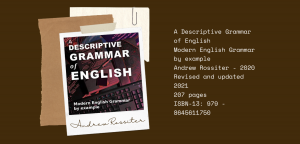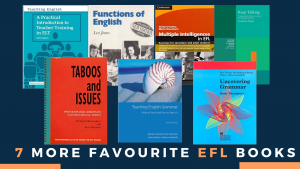My A-Z of Teaching English in Korea and Vietnam
There are an estimated 250,000 native English speakers teaching English as a foreign language in over 40,000 institutions. Although the world of TEFL is much too unwieldy to be summed up in generalities it remains a career. I think it fair to say, into which most people fall. This was certainly true for me.
Fresh from graduating an ill-advised degree and lacking any particular direction. I admit that it was not the allure of the classroom that compelled me to scan job postings on Dave’s ESL Café. Neither was it my love for kids nor some paternalistic desire to guide them through their ABCs. Rather, naïve as it now sounds, a sojourn abroad seemed to represent everything. A cocksure twenty-something could want: adventure, escape, and enough income to keep the Student Loans folks at bay.
If I had read My A-Z of Teaching English in Korea and Vietnam, I might not have been quite so wide-eyed.
Making none of the Pom-Pom waving promises of the recruitment agencies and offering only a hint of the frustration you will find amongst the most jaded TEFLers. The book, written in a brisk and breezy style, recounts the experiences of the author as he tiptoes, trapezes and occasionally bulldozes his way through a thirteen-year career in two of Asia’s teaching markets.
And while there is no shortage of colourful personal asides (his wife sleeps with a meat cleaver under the mattress to fight away any ghosts that may show-up), the value of these episodes lies in how universal they prove to be.
Beginning in a hagwon (for-profit private educational institutions which operate separately from the public school system) in Gimhae
A gateway into TEFL in Korea and, indeed, the rest of the world” – our narrator is forced to navigate paths that. While rarely mentioned in the official literature, are all too familiar amongst the most battle-hardened members of the TEFL industry.
Whether it is the weekend visa-runs, feckless co-teachers, head-scratching bureaucracy or contradictory managerial decrees. It seems there is not a TEFL story that is complete without them. The author recalls his experiences with wit, irreverent good humour, as well as that age-old ace-in-the-hole, hindsight.
The narrative is not limited to the reach of the classroom nor should it be. There are few careers after all which necessitate such wholesale changes as TEFL and while this is part of the appeal of the industry. New recruits are quickly aware that the notion that the job offers some kind of break from “real life” is far from the reality. In fact, it is highly likely to prove a much more intense version of real life. Getting to grips with an alien environment and an entirely new social group means that the rhythm of the author’s working week is punctuated by romantic relationships, homesickness, short sincere friendships, and inevitably, those far-too-frequent goodbyes.
Schmaltzy this book is not. At times, “withering” seems like the only accurate descriptor.
Because for all of the patience with which the author approaches his adoptive culture as well as the self-evident love. He displays for his students, neither are qualities which extend as far as the decision-makers he encounters. Having taught mainly in the public schools and universities of both countries, he has encountered the full gamut of them. The tyrannical, the corrupt, the duplicitous and straight-up incompetent. Upon which, he draws astute parallels between his own employment woes and broader frustrations within the industry.
Thankfully, the author does not leave prospective TEFLers to face these frustrations unarmed. Part Two of the book – “my personal, and highly subjective thoughts about some key aspects EFL” – might be regarded as a kind of “how to” guide. It is an inventory of advice that is presented in alphabetical order.
Many of these nuggets are cultural (“L is for (not) learning the local language”), others are professional (“O is for Office Politics”).
Some are what might be best termed ‘motivational’ (“W is for work hard”). While the rest are musings on everything from Americans to national service, from immigration to students’ overlooked requirements for sleep. By the author’s own admission, not all of these entries will find unanimous agreement. Nevertheless, after reading the preceding pages and seeing the dedication, determination. And enthusiasm with which he approaches his job. It is clear that his guidance is one that any serious teacher would do well to consider.
Alas! this guidance has come too late for my twenty-something self. In all likelihood, I would have been too cocksure to heed it. That said, the fact that my planned sojourn abroad has developed into a fully-fledged, decade-long career. A career that like the author’s, has facilitated a family, friends and countless adventures, serves to illustrate the overarching point of the book. Namely, that if you pick your battles and learn to roll with the punches. TEFL has the capacity to take your life in the most amazing and unexpected of directions
You can pick up your copy of The A-Z of Teaching in Korea and Vietnam here




